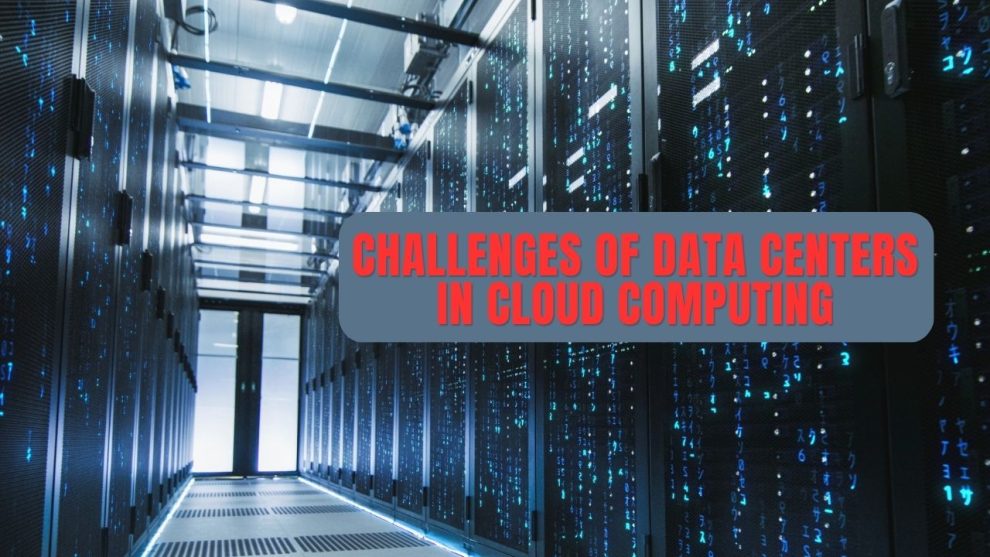
In recent years, cloud computing has become a widely adopted technology by businesses and organizations worldwide. With the numerous benefits it provides, such as scalability, cost-effectiveness, and flexibility, the demand for cloud services continues to grow. However, as the demand for cloud computing services increases, so do the challenges that data centers face. In this article, we will discuss the challenges of data centers in cloud computing and how they can be addressed.
Introduction
Cloud computing has revolutionized the way organizations manage and store their data. It has provided businesses with the ability to store, manage, and access their data from anywhere in the world, making it a vital technology for businesses in the modern world. Cloud computing relies on data centers, which are facilities that house computer systems and associated components. However, as the demand for cloud services grows, so do the challenges of data centers in cloud computing.
Understanding Cloud Computing and Data Centers
Before we delve into the challenges of data centers in cloud computing, it is essential to understand the basics of cloud computing and data centers. Cloud computing is a technology that enables businesses to access computing resources, such as servers, storage, and applications, over the internet. It eliminates the need for organizations to have their physical computing infrastructure, which can be expensive and time-consuming to maintain. Data centers are facilities that provide computing resources to businesses and organizations that use cloud computing. They are responsible for storing, managing, and processing data, as well as providing secure and reliable access to cloud services.
The Challenges of Data Centers in Cloud Computing
As the demand for cloud services continues to grow, data centers face several challenges that affect their scalability, security, reliability, energy efficiency, and cost management. Let’s take a closer look at each of these challenges.
Scalability
One of the primary challenges of data centers in cloud computing is scalability. As more businesses adopt cloud computing, the demand for computing resources increases. Data centers must scale their infrastructure to meet this growing demand. However, scaling data centers can be a complex and costly process, and it can be challenging to predict the amount of computing resources needed in the future.
Security
Data security is another significant challenge for data centers in cloud computing. Data centers store vast amounts of sensitive information, and any security breach can be catastrophic for businesses and their customers. Data centers must ensure that their infrastructure is secure, and they must implement the necessary security measures to protect against cyber-attacks.
Reliability
Reliability is another significant challenge for data centers in cloud computing. Downtime can have a severe impact on businesses, resulting in lost revenue, decreased productivity, and damage to the organization’s reputation. Data centers must ensure that their infrastructure is reliable, and they must have backup systems in place to prevent downtime.
Energy Efficiency
Data centers consume a significant amount of energy, and this can be a challenge for businesses that want to minimize their carbon footprint. Energy costs can also be a significant expense for data centers. Data centers must implement energy-efficient solutions to reduce their energy consumption and associated costs.
Cost Management
Cost management is another significant challenge for data centers in cloud computing. Building and maintaining data centers can be expensive, and data centers must operate efficiently to minimize costs. Data centers must find ways to reduce costs without compromising the quality of their services.
Addressing the Challenges
While the challenges of data centers in cloud computing are significant, there are several solutions that data centers can implement to address these challenges.
Scalability Solutions
To address the scalability challenge, data centers can implement virtualization and automation technologies. Virtualization enables data centers to create multiple virtual machines on a single physical server, which helps them to optimize their computing resources. Automation technologies can help data centers to scale their infrastructure automatically in response to demand.
Security Solutions
To address the security challenge, data centers must implement strict security measures, such as firewalls, intrusion detection systems, and encryption technologies. They must also monitor their infrastructure for any signs of cyber-attacks and have incident response plans in place.
Reliability Solutions
To address the reliability challenge, data centers must implement redundancy and failover solutions. Redundancy involves duplicating critical components, such as servers and storage devices, to ensure that there is no single point of failure. Failover involves automatically switching to a backup system in the event of a failure.
Energy Efficiency Solutions
To address the energy efficiency challenge, data centers can implement several solutions, such as virtualization, efficient cooling systems, and renewable energy sources. Virtualization helps data centers to optimize their computing resources, which reduces their energy consumption. Efficient cooling systems can help to reduce energy consumption associated with cooling, while renewable energy sources can help data centers to reduce their carbon footprint.
Cost Management Solutions
To address the cost management challenge, data centers can implement several solutions, such as optimizing their computing resources, negotiating better contracts with vendors, and reducing their energy consumption. Optimizing computing resources helps data centers to reduce the amount of hardware they need, which reduces their capital expenses. Negotiating better contracts with vendors can help data centers to reduce their operational expenses, while reducing energy consumption can help data centers to reduce their energy costs.
Conclusion
Data centers play a critical role in cloud computing, providing businesses and organizations with the computing resources they need to manage and store their data. However, as the demand for cloud services continues to grow, data centers face several challenges, such as scalability, security, reliability, energy efficiency, and cost management. To address these challenges, data centers must implement solutions that optimize their infrastructure and services.